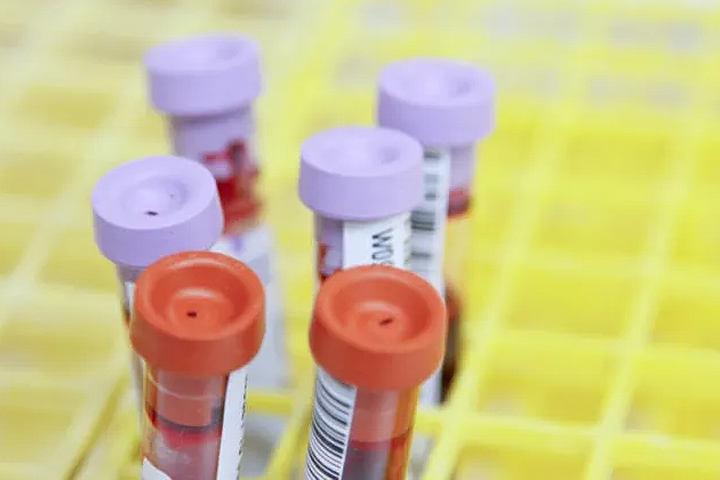Precursors to Pancreatic Cancer: Are There Any Signs to Watch Out For?

Catching cancer early often allows for more treatment options, but pancreatic cancer is notoriously evasive.
Some things are worth special attention as potential precursors to pancreatic cancer.
Pancreatitis
Pancreatitis seems an obvious candidate. There are actually two forms.
Acute pancreatitis (AC) is the version that sends you to the hospital, keeling over in abdominal pain and vomiting. It is a sudden onset, severe inflammation of your pancreas that occurs when digestive enzymes become activated while still in the pancreas. It often goes away within a few days without further complications.
Chronic pancreatitis (CP) is prolonged inflammation that may last for years. It can eventually lead to the need for removal of the pancreas, which can be accompanied by auto islet transplantation, in which the islet cells (insulin-producing cells found in the pancreas) are removed from the pancreas after it has been taken out, and transplanted to the liver, reducing the need for insulin and ensuring other vital hormones produced in the pancreas are sustained.
Those with chronic pancreatitis are more likely to develop pancreatic cancer, due to the prolonged inflammation of the pancreas. Five years after diagnosis, CP patients have around an eight times higher risk of pancreatic cancer, according to Venkata Akshintala, M.B.B.S., Assistant Professor of Medicine in the Division of Gastroenterology at Johns Hopkins Hospital in Baltimore, Maryland. This risk varies by etiology (origin) of the condition, age, and other risk factors, including whether the CP was caused by genetic mutations, he adds.
Acute pancreatitis does not necessarily carry with it increased risk of pancreatic cancer, but it may be the first presenting sign of pancreatic cancer. Approximately 5-6 percent of pancreatic patients have their cancer discovered while being treated for AC, or shortly thereafter, Akshintala says.
Pancreatic Cysts
Pancreatic cysts, particularly among people over age 50, are an increasingly common finding. Some people are predisposed to develop pancreatic cysts because of genetics, and others arise from pancreatitis.
These water- or mucus-filled structures are benign and slow-growing in most cases, and they require nothing more than continued observation, through additional imaging. If doctors become concerned, surgical removal may be recommended. The outcomes for these patients are dramatically better than for solid pancreatic tumors.
Diabetes
New-onset type 2 diabetes can be a red flag for pancreatic cancer, since cancer in the pancreas can affect the islets that produce insulin, triggering diabetes. But diabetes is becoming so increasingly common that it has been called a 21st-century epidemic, affecting about 9 percent of the U.S. population. Should you worry?
If you are newly diagnosed with diabetes after age 50, you are eight times more likely to be diagnosed with pancreatic cancer one to three years after the diabetes diagnosis. It may be worth consulting a specialist, especially if you are aware of any familial history of pancreatic conditions or genetic risk factors (see below).
If you’ve had diabetes for a while, it is considered a modest risk factor, increasing risk about two-fold. The best way to decrease your risk is to keep your diabetes under control; the same things that you do to control your diabetes from getting worse can also reduce the risk of pancreatic cancer.
Genetic Predisposition
One notable precursor to pancreatic cancer lies in your genes. Well-established risk factors for pancreatic cancer include family history and certain genetic syndromes, as well as mutations in genes like BRCA1/2, PRSS1, and SPINK1. Genetic testing can help identify if you may be at risk. If you are found to have mutations in specific cancer predisposition genes linked to other cancers, you may also want to undergo additional screening for those cancers.
What You Can Do
There are certain screening and monitoring programs available if you have any of the precursors described above. The National Pancreas Foundation publishes a list of hospitals that have special programs focused on the diseases of the pancreas. The National Pancreas Foundation Centers of Excellence follow pancreatic cancer screening protocols for those at high risk or those who have had pancreatic lesions or cysts identified during scans for other illnesses.
The screening can include endoscopic ultrasound, in which a thin, flexible tube is passed through the mouth into the first part of the small intestine near the pancreas to capture an image and perform a biopsy, if needed, and magnetic resonance cholangiopancreatography (MRCP), which works similarly to a standard MRI scan to take images of the pancreas.
These tests are aimed at detecting precancerous or early cancerous changes in the pancreas, in hopes of diagnosing the cancer at an early, more treatable stage.






